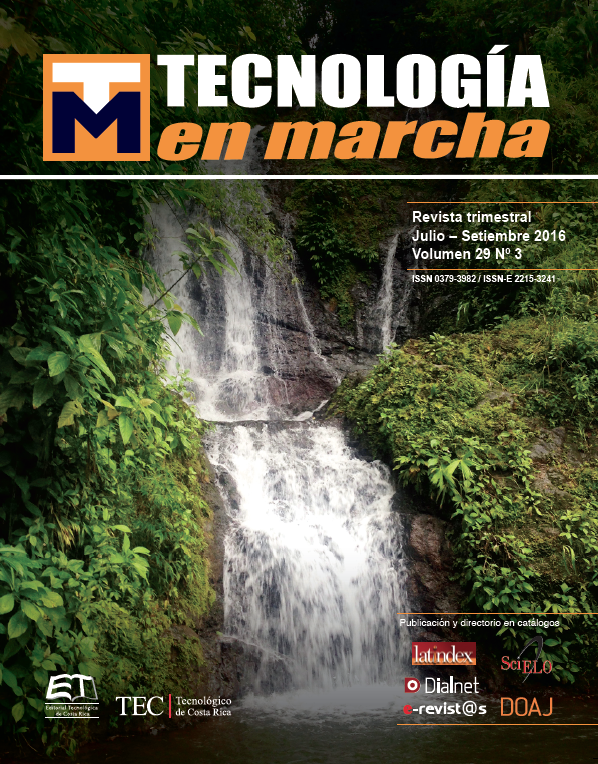Aplicación de un método para evaluar el impacto ambiental de proyectos de construcción de edificaciones universitarias
Contenido principal del artículo
Resumen
La evaluación de impacto ambiental consiste en la identificación y valoración de los impactos potenciales de proyectos respecto a los componentes físicos, químicos y biológicos, culturales, económicos y sociales, con el fin de que mediante la planificación y la correcta toma de decisiones se desarrollen aquellas actuaciones más compatibles con el medio ambiente. El objetivo principal es asegurar que las consideraciones ambientales sean explícitamente expresadas e incluidas en el proceso de toma de decisiones y anticipar y evitar, minimizar y compensar los efectos negativos sobre el medio ambiente. Al proceso de evaluación ambiental de un proyecto se le pueden aplicar diferentes técnicas metodológicas, algunas generales, otras de carácter más específico. En Costa Rica la metodología más común es la elaborada por la Secretaría Técnica Ambiental (SETENA, 2016A). Con el fin de valorar el impacto ambiental de los proyectos de construcción en una universidad, se aplicó el formulario ambiental del SETENA, identificándose la magnitud de los factores, componentes y subcomponentes ambientales significativos de cada uno de ellos (SETENA, 2016B). La investigación permitió obtener y analizar los valores de significancia del impacto ambiental de los proyectos en función de: la cantidad de aspectos ambientales, la aplicación de reglamentos específicos, la ubicación geográfica del proyecto y el uso guías ambientales. Se identificaron los proyectos con mayor o menor cantidad de subcomponentes ambientales significativos, metros cuadrados de construcción, y valores de impacto ambiental preeliminar, ponderado y final. Se analizó la relación existente entre la cantidad de aspectos ambientales significativos de cada proyecto y su influencia en el valor final de significancia ambiental.
Detalles del artículo
Los autores conservan los derechos de autor y ceden a la revista el derecho de la primera publicación y pueda editarlo, reproducirlo, distribuirlo, exhibirlo y comunicarlo en el país y en el extranjero mediante medios impresos y electrónicos. Asimismo, asumen el compromiso sobre cualquier litigio o reclamación relacionada con derechos de propiedad intelectual, exonerando de responsabilidad a la Editorial Tecnológica de Costa Rica. Además, se establece que los autores pueden realizar otros acuerdos contractuales independientes y adicionales para la distribución no exclusiva de la versión del artículo publicado en esta revista (p. ej., incluirlo en un repositorio institucional o publicarlo en un libro) siempre que indiquen claramente que el trabajo se publicó por primera vez en esta revista.

